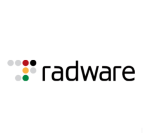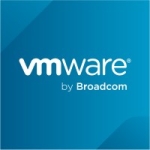The anti-bot protection is very good. They are able to see bots from their system quite well. It has helped our customers to filter real traffic from fake and allows the real traffic to access the application. With the profile provided, you can block many new scans and scripts that are constantly generating traffic to their web service.
When you create an autofile, its profile takes a long time to generate the view in the VIP. That is probably due to the performance of the device, however, when you load a specific profile, the browser takes more than one minute to show the information.
The web interface could be better.
The solution should allow for the creation of custom signatures. Right now, I see that can be a little bit complicated to create new or personal signatures in the VIP.
The way that policies are created should make it easier to maintain the solution.
The product needs to implement some kind of artificial intelligence or machine learning that can start to generate fewer false positive requests. We tend to have a lot of false positives. The policy should be created in such a way as to help lower false positives.
There should be better reporting. Our customers ask us for reports quite often. It would be ideal if the solution itself was able to generate various types of reports for them instead.
I've been working with the solution since 2014.
This year, we had a couple of issues. We found some bugs in version 15. They are very good, however, at finding the issue and generating a hotfix quickly so that we can apply the hotfix to the device. In the general, I would say that version 15 has been very stable overall.
Whether you can scale easily or not depends on the device and the sizing. For example, if you have an E 2000 or I 4000, you might have a lot of traffic and the device cannot handle it very well. Scalability with the performance was the one issue that affected us this year.
Most of the customers that we have are enterprises. They are banking and insurance customers. They're quite large, which is why we need the scalability that we do.
We always use technical support and the team helps us very well. They're able to effectively find and fix issues and they respond very quickly. We're quite satisfied with their level of service overall.
We also work with Palo Alto firewalls. I've worked with Check Point as well.
The initial setup is not too complex. It's pretty straightforward.
It's straightforward to create a new policy or a new postulate or a new deployment. It takes a couple of minutes to create a new deployment and it's rather easy to do so.
We're a reseller for Enterprise companies such as Banking and Retail.
I'd advise that if a customer wants to implement this product, that they find a partner they can have a strong relationship with. The partner needs to be able to effectively implement the product and train your staff on the proper usage. That is, of course, if the client wants to manage it themselves in the long run.
Overall, I would rate the solution eight out of ten. If they could improve their web interface, generate reports, and have all the configuration on a single page on the platform, I'd rank it a bit higher.





















6WIND Virtual Accelerator™ is hypervisor acceleration software that works transparently with F5® BIG-IP® Local Traffic Manager™ (LTM®) Virtual Edition (VE) to increase throughput performance without any change to the application, hypervisor, operating system, or management.
Acunetix is an industry-leading solution used to automatically scan and audit complex authenticated web applications, reporting on a wide range of over 3000 web vulnerabilities, including SQLi and XSS.
Altipeak partners with F5 Networks to provide strong and secure access management to organization’s resources and Internet applications.
Anuta Networks partners with F5 to simplify and deliver the advanced network services from layer 4-7 leveraging both physical and virtual devices to simplify the deployment of advanced network services, extending their capability beyond traditional layer 2-3 services